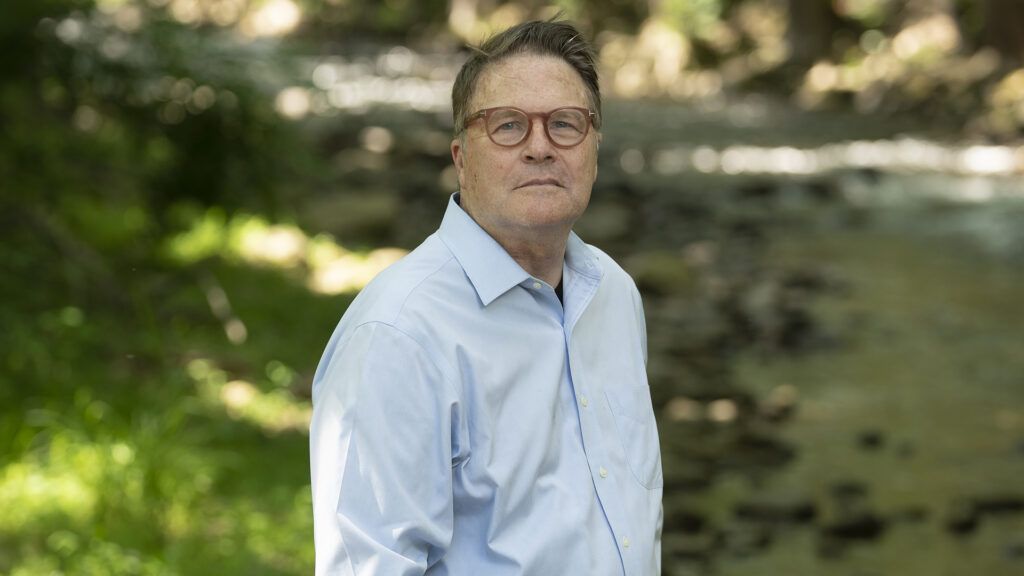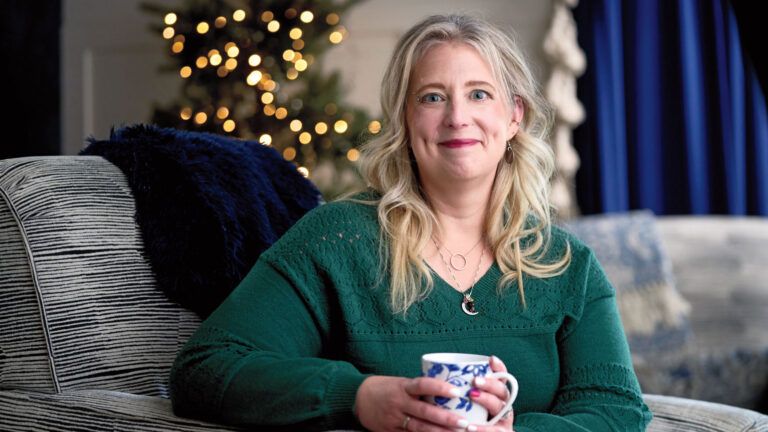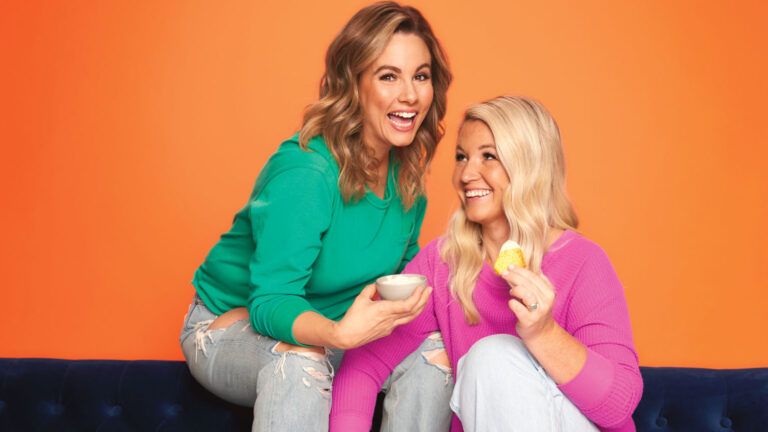We are living in frightening, tumultuous times. Coronavirus continues its spread across the globe, killing hundreds of thousands of people, its toll of sickness and economic disruption affecting millions more. The poor and people of color have been particularly hard hit. There have been protests and demands for change. It’s hard not to feel helpless. Hard to stay hopeful.
But it is important to remember that we have been here before—many times, in fact. As a chaplain and as the national spiritual care manager for the American Red Cross, I have witnessed firsthand how our country has come together in times of crisis, how God works through each of us and how there are ways to give and receive comfort, small yet powerful acts of kindness, even when life seems darkest. Here are five examples.
Comfort comes from compassion
I grew up in tiny Boonville, Missouri. My father was an auto mechanic, and my mother was a homemaker dedicated to volunteering at church and helping out family and friends. I remember many a night when my dad would open our house to strangers whose cars had broken down. And my mother would run errands for people who didn’t drive.
It wasn’t just my family. Neighbors helped neighbors. That was who we were. I felt called to a life of service too. The 1960s, when I came of age, were a time of unrest and change. I wanted to do something to make the world a better place. After graduating from Yale Divinity School, I went to work as a pastor back home in Missouri.
In time, I was drawn to ministering to people one-on-one, particularly those who’d been left out of mainstream society. I became a hospital chaplain and moved to New York City in the mid-1990s to take a job on an AIDS unit. It was heartbreaking work. Many patients had been ostracized by their families. They felt rejected even by God. I wanted to show them that they were loved, to bring a little joy into their lives.
One summer I was ministering to a patient who had only weeks to live. He had told me how much he’d loved Christmas growing up. So what if it was July? I set up a Charlie Brown tree in his room. Hung garland from his windows. Brought in a boom box to play his favorite carols. Lastly, I got permission from the hospital for his dog to visit.
The dog bounded into his room to the sounds of “Joy to the World.” My patient was beaming like a kid on Christmas morning. “Merry Christmas,” he said. “Merry Christmas,” I said and held him tight. What I’d done was a small thing, but the light in my patient’s eyes told me I’d been able to find a way to share God’s love.
Comfort comes on the fly
I moved to the Washington, D.C., area, two days before September 11, 2001, for a new job as a hospital chaplain. I was sitting in my backyard when I heard an explosion and saw smoke rising from the Pentagon. The United States was under attack.
In the days that followed, so many people came to the hospital to donate blood. President Bush visited the victims and their families. The incredible response from people across the country was humbling and inspiring. Yet the need remained so great.
The American Red Cross wanted to dramatically expand its chaplain crisis response teams. I was hired to lead the effort. The work was deeply gratifying, but for the first responders, the mental health professionals and everyone answering the call, the stress was never-ending. There wasn’t always time for a well-coordinated response.
One day, I heard about a chaplain—a Catholic priest—and a mental health counselor who had run into each other on the platform of the West Fourth Street subway station in New York City. The priest could see the counselor was hurting. “Would you like to receive communion?” the priest asked. With people bustling around them, they stopped for a moment of healing. Of comfort. It was completely unplanned, but it was exactly what was needed.
Comfort comes through animals
I thought nothing could be as difficult as responding to the 9/11 attack. Four years later, Hurricane Katrina showed me that every disaster brings its own unique challenges and complexities. More than a million people were displaced from their homes; more than 1,800 died. I was part of a team charged with opening a thousand shelters across the Gulf Coast within days. We recruited and trained 250,000 volunteers to staff them, including chaplains.
The combination of heat, humidity and water made the recovery and identification of bodies an emotional and physical challenge like no other. We stationed chaplains at the temporary mortuary to support both the bereaved families and the mortuary workers. Every time a body was recovered, a chaplain said a blessing. The chaplains were seasoned; many had served in the military or police. But even they were profoundly affected.
At my desk at the disaster operations center, I kept an inflatable marshmallow Peep with the message “When times are hard, you need something soft.” It gave the staff and volunteers who passed through my office something to break the tension.
Katrina opened the door to another kind of comfort in times of crisis. Many of the displaced arrived with their pets. Traditionally temporary shelters didn’t allow animals, but it was essential to keep these families intact, as they’d already lost so much.
We set up pet-friendly shelters, so people didn’t have to be separated from their beloved animals. Those dogs and cats offered healing beyond anything a chaplain could provide. I thought of my dying patient in the AIDS unit, how grateful he had been to share even one night with his dog. I’m glad to see that comfort dogs are as common today as chaplains at disaster sites.
Comfort comes through self-care
We’re used to hearing the airplane emergency protocol: “Put on your own oxygen mask before attending to others.” It is sage advice for any crisis. You can’t effectively help anyone if you’re not taking care of yourself. That can mean exercising, reading Scripture, listening to music—anything that gives you a respite.
When I got the call in 2007 that there had been a horrendous mass shooting on the Virginia Tech campus that had left 32 dead, I was with several of my staff at a conference in New Mexico. We knew the next few days would be long and difficult. There were calls to be made. A response team to activate. Survivors to minister to. Already it felt overwhelming and overwhelmingly tragic.
Time was of the essence. But first we needed to pause and ready our spirits for the task ahead. Before I could offer comfort, I had to find comfort myself. My oxygen mask. Specifically, comfort food. There was a restaurant in Santa Fe that was famous for its banana cream pie. I drove straight there.
I realize how crazy it sounds that anyone—much less the head of the American Red Cross Chaplain Response Team—could want some pie at a time like that. But that piece of pie gave me a chance to take a breather and gather the strength I needed to be there for others.
Comfort comes from neighbors
On Sunday evening, May 22, 2011, a massive tornado ripped through the small southern Missouri city of Joplin. It was the deadliest tornado in the U.S. in decades, killing 158 people and injuring more than a thousand. The extent of the damage was shocking, even to veteran first responders. As someone who grew up in Missouri, I was well acquainted with tornado season and the damage twisters can do. Still, I found it difficult to fathom how Joplin could ever recover. Where to even start?
I deployed teams of chaplains, the Red Cross being one of more than 2,000 government and nonprofit agencies that responded. But when I think about Joplin, what has stayed with me were the volunteers.
In the weeks and months after the tornado, more than 80,000 people poured into southern Missouri. They searched for survivors. They cleared roads and handed out water and sandwiches. They rebuilt homes and businesses. Many brought necessities to give out to the residents of Joplin—clothes, soap, toothbrushes. Thousands of the volunteers came from churches and houses of worship.
I’d witnessed the same generosity of spirit, the same selflessness, during 9/11 and Katrina, at every disaster I’d responded to. But Joplin, perhaps because it isn’t a major metropolitan area, stands out to me as a reminder of how God works in each of us to bring light through the darkness.
In any crisis, volunteers are critical. Neighbors helping neighbors, the same spirit that originally inspired me growing up in Boonville. And it’s evident today as the world confronts Covid-19. Thousands of doctors and nurses have come out of retirement. Volunteers are making masks, checking on neighbors who are particularly vulnerable.
As challenging as it has been to self-isolate and wear masks and practice social distancing when we go out, this pandemic has also brought us closer emotionally and spiritually. With God’s help, there’s no crisis, no disaster, we can’t see our way through together.
For more inspiring stories, subscribe to Guideposts magazine.





